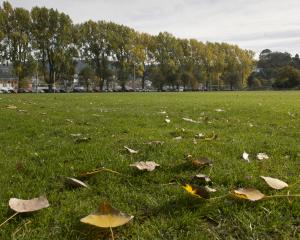Lead author Associate Prof Sandy Mandic said cycle skills training in schools improved cycling-related knowledge and confidence to cycle in different environments, but it had a minimal impact on young people's confidence or rates of cycling to school.
She believed children were less confident about cycling to school because parents perceived it to be too dangerous for them.

"One of the main reasons for concern about cycling as a mode of transport, is related to traffic safety - both perceived traffic safety from parents as well as the actual safety of our road network.
"What we are seeing from our study is just the short-term cycle skills training is not sufficient to change their behaviour and confidence.
"So additional interventions are required, relating to the built environment, parental perceptions and traffic safety."
Prof Mandic said encouraging active transport to school (such as walking and cycling), could help curb concerning trends in young people becoming less physically active.
"We're seeing a decline in physical activity from childhood to adolescence. This decline is more noticeable in adolescent girls versus boys.
"Encouraging cycling to school could be one way to promote physical activity in youth."
She said cycle skills training was typically done on school grounds, and those who achieved basic skills spent six hours practising on roads with light traffic.
"Cycle skills training with more emphasis on cycling on roads and in traffic could help increase child and adolescent cycle skills and confidence (and confidence of their parents), and may facilitate an increased uptake of cycling as a mode of transport.
"However, for both groups, additional interventions targeting parents, schools, and built environment/urban-planning changes may be necessary to achieve behavioural change," she said.
The study involved 429 children from three primary and intermediate schools and 117 adolescent girls in two secondary schools in Dunedin.
It was conducted in collaboration with the Dunedin City Council and was funded by the council and Sport New Zealand.
Prof Mandic hoped the study would help shape nationwide cycle skills training guidelines to specifically target the factors affecting young people's ability and willingness to cycle to school.
This might include more on-road cycling time and tailoring the programme to adolescents' needs and preferences.












